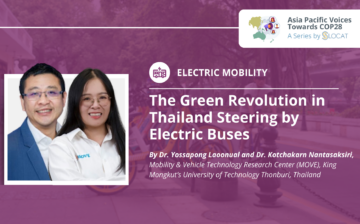
The Green Revolution in Thailand Steering by Electric Buses
By Dr. Yossapong Laoonual and Dr. Kotchakarn Nantasaksiri, Mobility & Vehicle Technology Research Center (MOVE), King Mongkut’s University of Technology Thonburi, Thailand At the United Nations Climate Change Conference 2021 (COP26) in Glasgow, Scotland, Thailand’s Prime Minister pledged to reduce …

Advancing the Goals of the Paris Agreement through Regional Cooperation
By Wei-Shiuen Ng, United Nations Economic and Social Commission for Asia and the Pacific (ESCAP) Member States of the United Nations Economic and Social Commission for Asia and the Pacific (ESCAP) across the Asia Pacific region have shown different priorities …
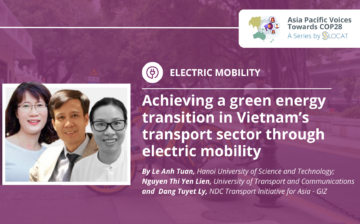
Achieving a green energy transition in Vietnam’s transport sector through electric mobility
By Le Anh Tuan, Hanoi University of Science and Technology; Nguyen Thi Yen Lien, University of Transport and Communications and Dang Tuyet Ly, NDC Transport Initiative for Asia – GIZ An electric bus on the road in Hanoi, Vietnam. The …
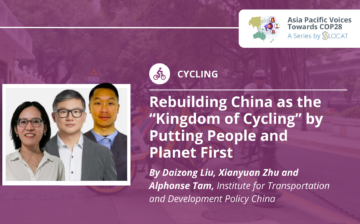
Rebuilding China as the “Kingdom of Cycling” by Putting People and Planet First
By Daizong Liu, Xianyuan Zhu and Alphonse Tam, Institute for Transportation and Development Policy China In the 1980s, Chinese cities often had thousands of cyclists take to the streets during rush hour and the country was often recognised as a …
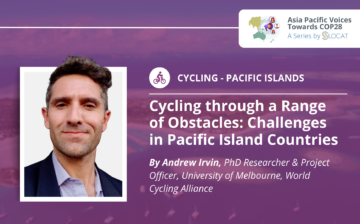
Cycling through a Range of Obstacles: Challenges in Pacific Island Countries
By Andrew Irvin, PhD Researcher & Project Officer, University of Melbourne, World Cycling Alliance Pacific Islands Countries (PICs) face many crises that demand urgent responses. PICs have some of the largest Exclusive Economic Zones and smallest land areas in the …
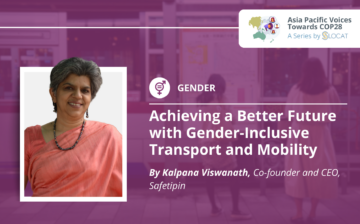
Achieving a Better Future with Gender-Inclusive Transport and Mobility
By Kalpana Viswanath, Co-founder and CEO, Safetipin Women occupy urban spaces and use transport systems in ways that are very different from men. This gendered experience is shaped by mainly two factors – women’s role as caregivers and safety concerns. …
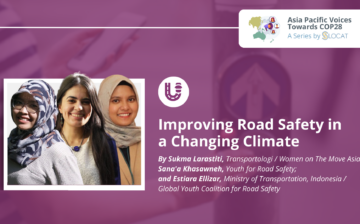
Improving Road Safety in a Changing Climate
By Sukma Larastiti, Founder and Director, Transportologi / Women on The Move Asia; Sana’a Khasawneh, Junior Project Manager, Youth for Road Safety; and Estiara Ellizar, Transport Planner, Ministry of Transportation, Indonesia / Global Youth Coalition for Road Safety Road safety …
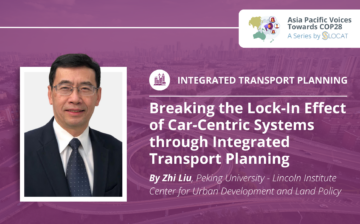
Breaking the Lock-In Effect of Car-Centric Systems through Integrated Transport Planning
By Zhi Liu, Senior Research Fellow and China Program Director, Lincoln Institute of Land Policy, and Director, Peking University—Lincoln Institute Center for Urban Development and Land Policy Integrated transport planning has been practised in many countries and regions around the …
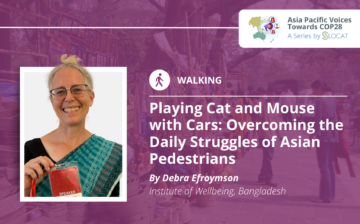
Playing Cat and Mouse with Cars: Overcoming the Daily Struggles of Asian Pedestrians
Walking, the simplest and most environmentally friendly mode of transport, holds tremendous potential for transforming our cities. It’s a mode of mobility that burns no fuel, emits no carbon, fosters community connections, and invigorates local economies. However, pedestrians in many Asian cities find themselves playing a dangerous game of “cat and mouse” with cars, enduring noise, pollution, and perilous street crossings. Despite walking constituting a significant portion of trips in these regions, policymakers often prioritize motorized transport, leaving pedestrians neglected. In this article, Debra Efroymson, Executive Director of the Institute of Wellbeing, Bangladesh, and Senior Advisor at HealthBridge, sheds light on the challenges faced by pedestrians in Asian cities and advocates for prioritizing walkability as a sustainable and equitable urban transport solution.
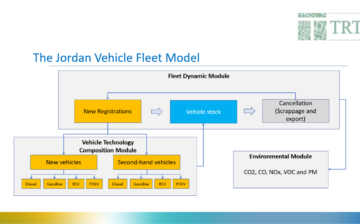
TRT Trasporti e Territorio Helping to Shape Jordan’s E-Mobility Transition Strategy
TRT Trasporti e Territorio is an independent consultancy, with offices in Milan and Brussels, specialised in mobility and transport economics, planning and modelling. In the area of sustainable mobility, TRT has expertise in the analysis and assessment of policies on energy efficiency and GHG emission reduction, studies on transport external costs and internalisation measures, and strategic planning for the design of more sustainable and inclusive transport systems.